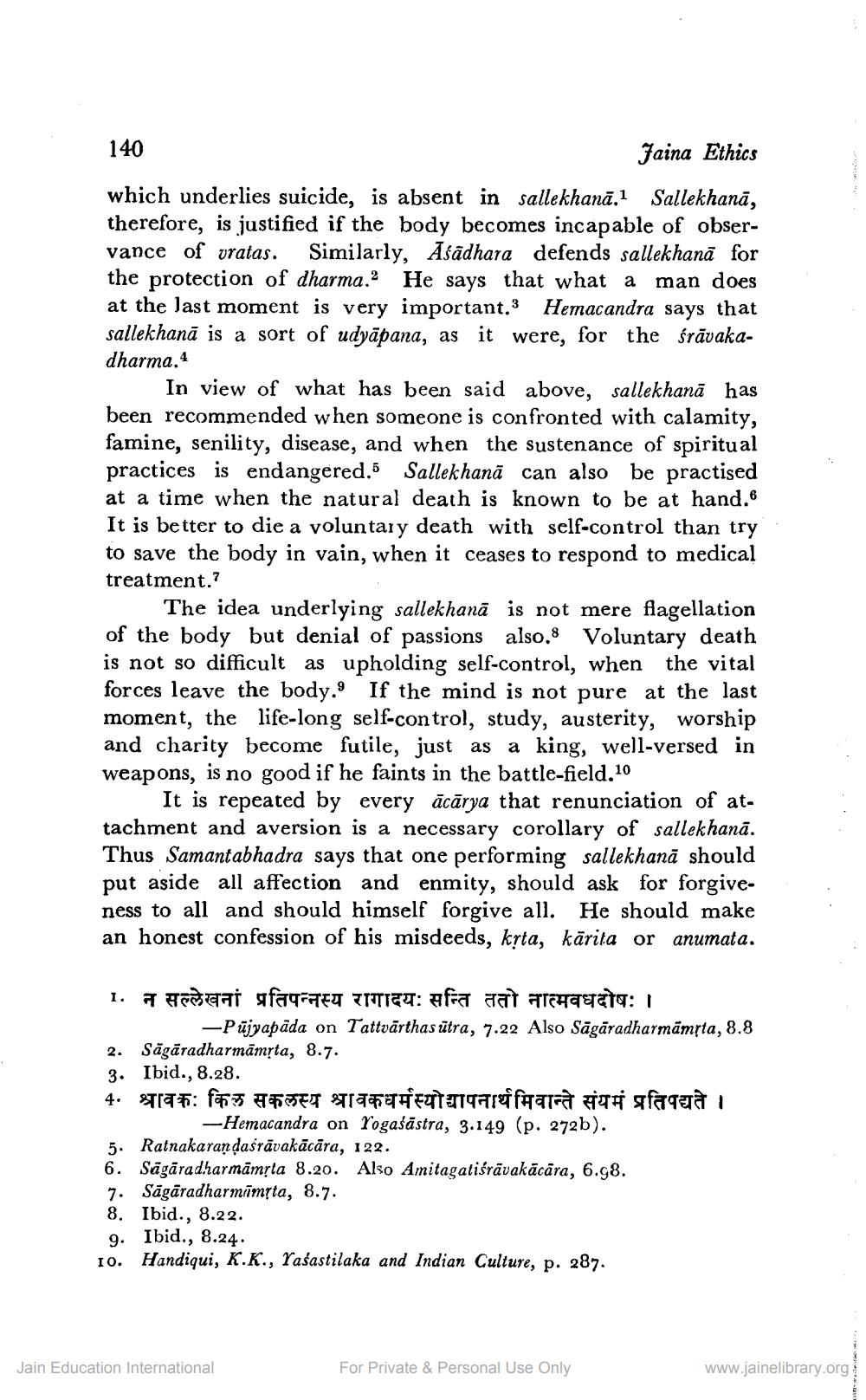________________
140
Jaina Ethics
which underlies suicide, is absent in sallekhanā.1 Sallekhanā, therefore, is justified if the body becomes incapable of observance of vratas. Similarly, Asadhara defends sallekhana for the protection of dharma." He says that what a man does at the last moment is very important. Hemacandra says that sallekhana is a sort of udyapana, as it were, for the śravaka
dharma.4
In view of what has been said above, sallekhana has been recommended when someone is confronted with calamity, famine, senility, disease, and when the sustenance of spiritual practices is endangered.5 Sallekhana can also be practised at a time when the natural death is known to be at hand." It is better to die a voluntary death with self-control than try to save the body in vain, when it ceases to respond to medical treatment.?
The idea underlying sallekhanā is not mere flagellation of the body but denial of passions also.8 Voluntary death is not so difficult as upholding self-control, when the vital forces leave the body. If the mind is not pure at the last moment, the life-long self-control, study, austerity, worship and charity become futile, just as a king, well-versed in weapons, is no good if he faints in the battle-field.10
It is repeated by every ācārya that renunciation of attachment and aversion is a necessary corollary of sallekhanā. Thus Samantabhadra says that one performing sallekhanā should put aside all affection and enmity, should ask for forgiveness to all and should himself forgive all. He should make an honest confession of his misdeeds, kṛta, kārita or anumata.
1. न सल्लेखनां प्रतिपन्नस्य रागादयः सन्ति ततो नात्मवधदोषः ।
-Pujyapada on Tattvärthasutra, 7.22 Also Sāgāradharmāmṛta, 8.8 Sāgāradharmāmṛta, 8.7.
2.
3. Ibid., 8.28.
4. श्रावकः किल सकलस्य श्रावकधर्मस्योद्यापनार्थमिवान्ते संयमं प्रतिपद्यते । -Hemacandra on Yogaśastra, 3.149 (p. 272b).
5. Ratnakaraṇḍaśrāvakācāra, 122.
6. Sāgāradharmāmṛta 8.20. Also Amitagatisravakācāra, 6.98.
7. Sāgāradharmamṛta, 8.7.
8. Ibid., 8.22.
9. Ibid., 8.24.
IO.
Handiqui, K.K., Yasastilaka and Indian Culture, p. 287.
Jain Education International
For Private & Personal Use Only
www.jainelibrary.org.




